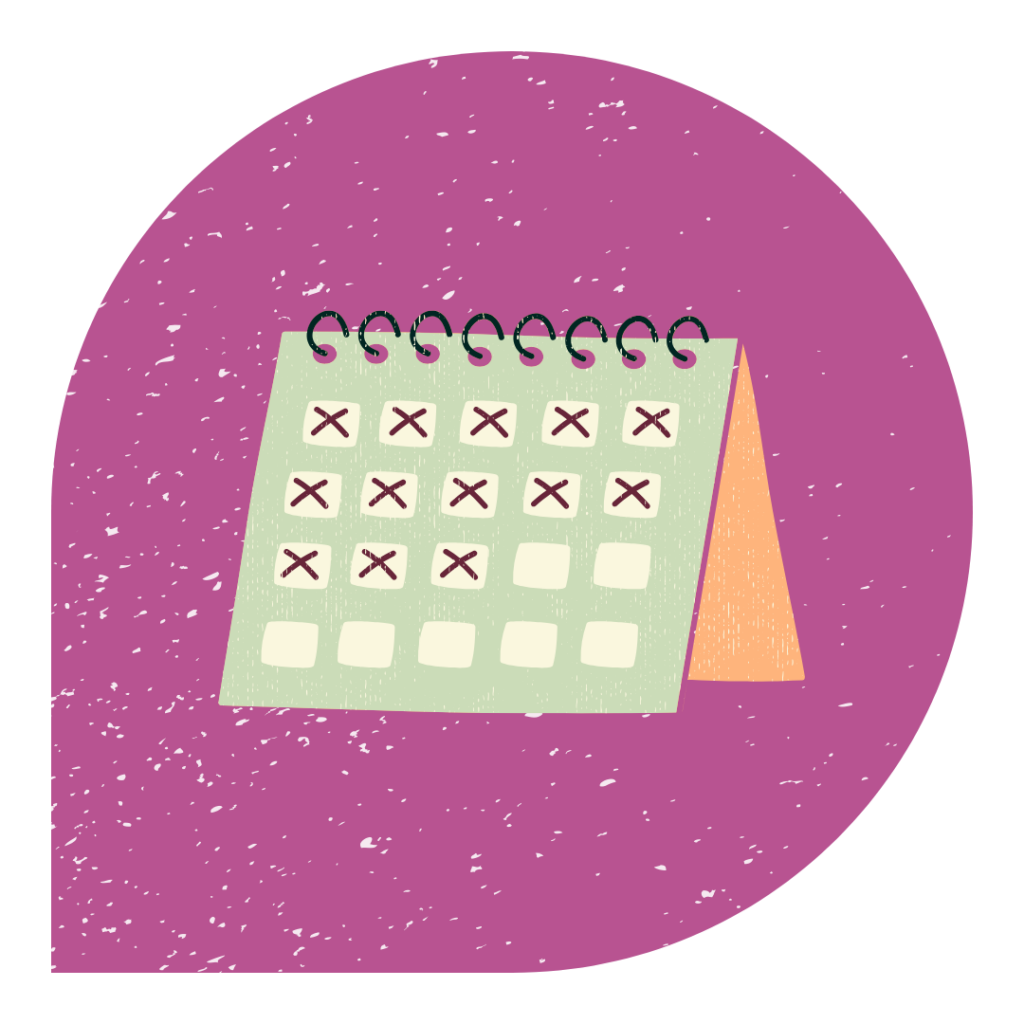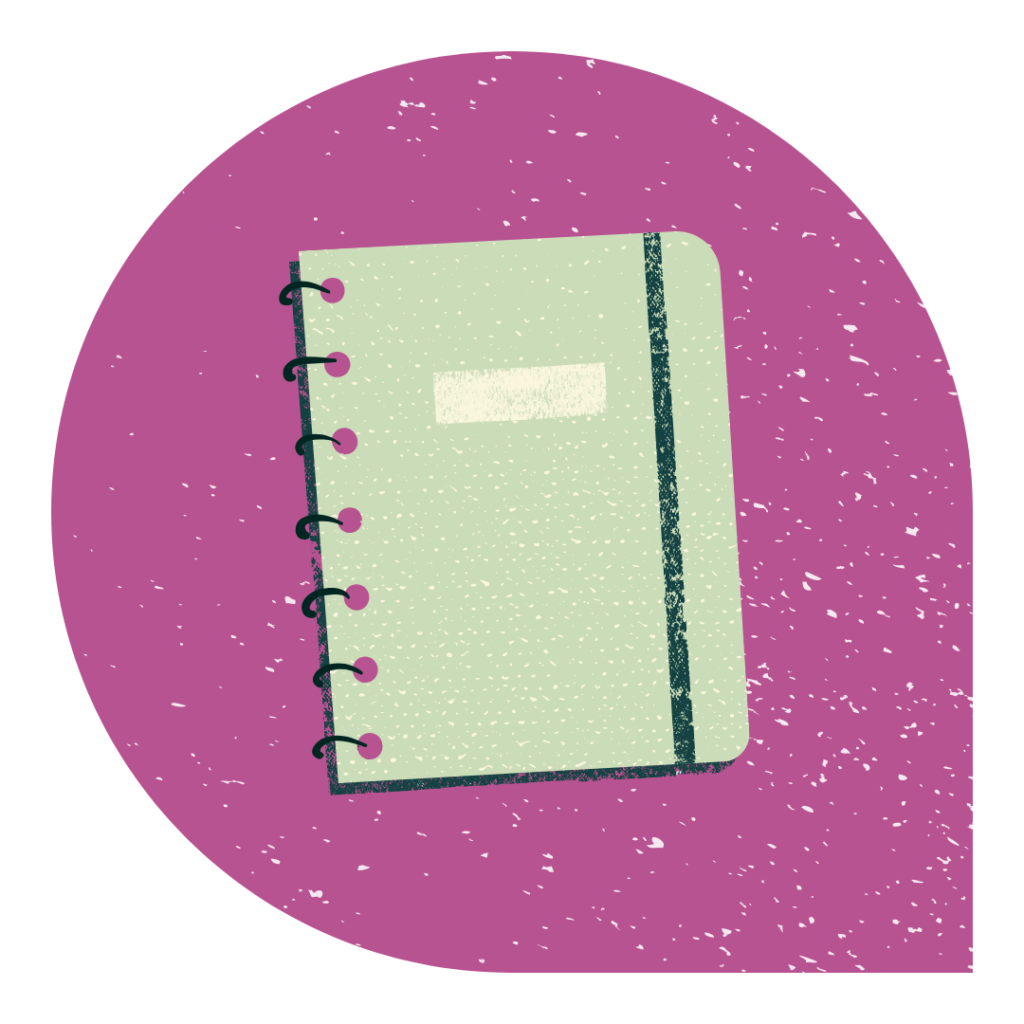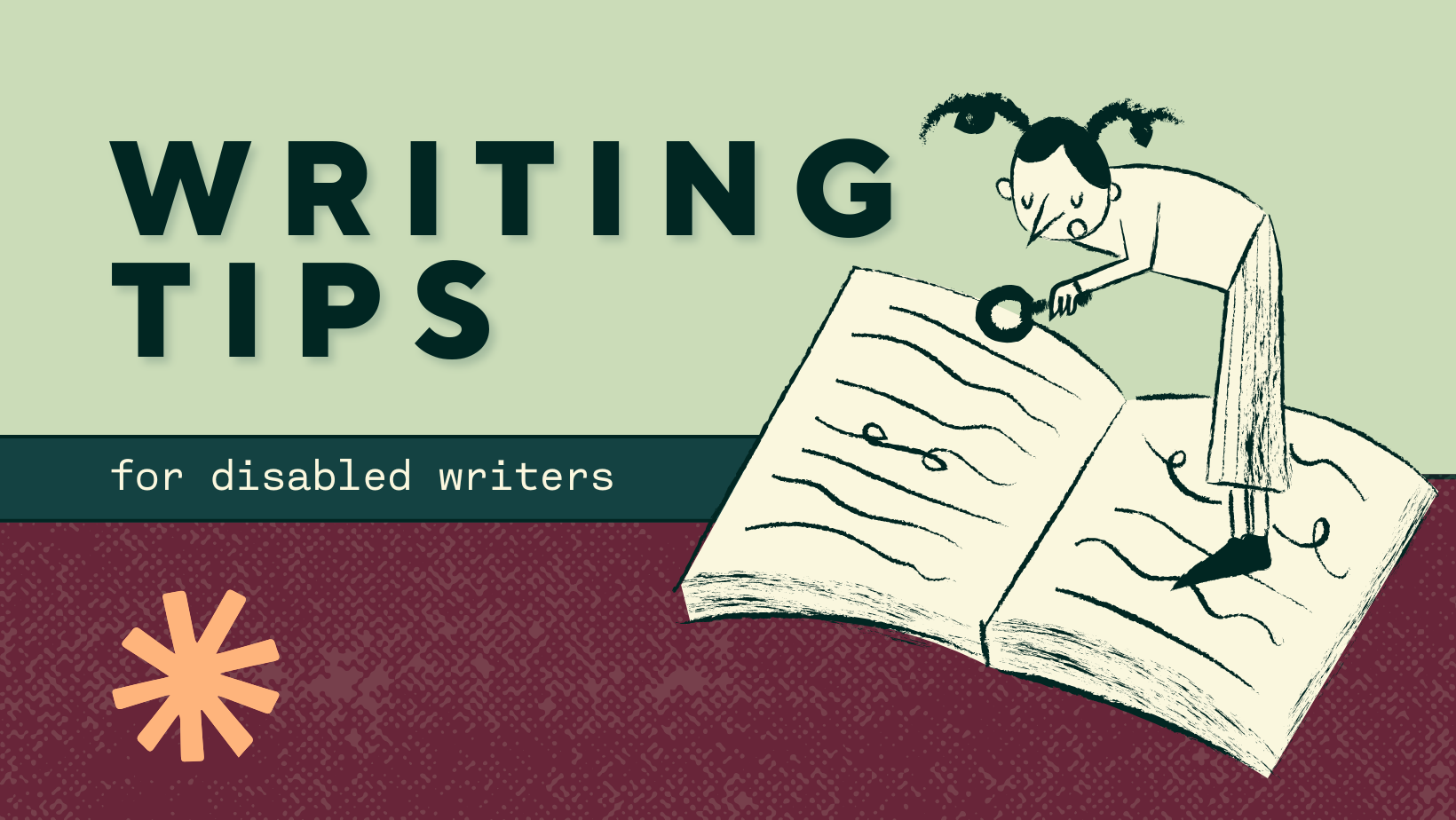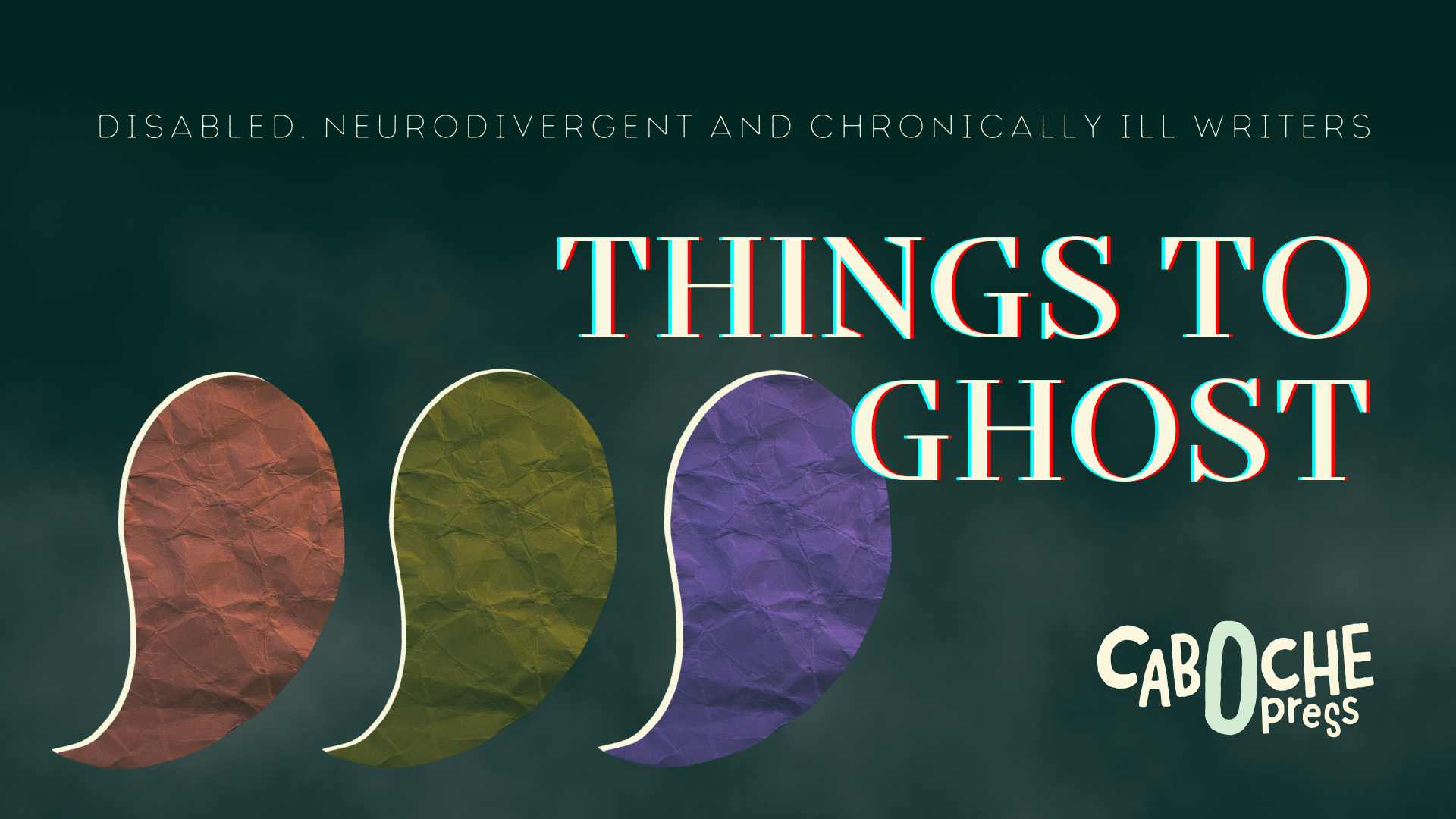Building a writing practice can be challenging for any writer, but for disabled writers, it often comes with additional barriers. At Caboche, we know how important it is to find a routine that aligns with your needs. Here are eight tips to create a sustainable writing practice.
1. Build a Routine
Building a routine (for writing or in general) is no easy task for writers with ADHD. Instead of trying to fit into any preconceived ideas about writers you might have, build a routine around your own habits and lifestyle.
If you’re not a morning person, you don’t have to wake up at the crack of dawn to write like Hemingway. You can write in the evening, before going to bed or dedicate an afternoon to writing every week.

Your routine should be adapted to your needs and take in consideration your energy levels. While consistency is important, having compassion for yourself is essential if you’re going to keep up with any routine!

2. Use Writing Prompts
The hardest part of writing is getting started. If you’re not particularly inspired by your current projects, you can use writing prompts to get your creativity flowing.
If you’re neurodivergent, we know it can be hard to tell if you’re diving into a new project out of boredom, but we’re here to remind you that using a writing prompt if you’re feeling stuck is OK! After all, writing is a muscle that needs practice.
There are a lot of free resources online, catering to a lot of different genres, but you could also create your own prompt jar or check out themed call for submissions – Caboche is currently looking for submissions under the theme of diagnosis!
3. Create a Cosy Writing Space
To paraphrase Virginia Woolf, one must have a room of their own if they are to write fiction. While Woolf was writing with women in mind, we believe this can be applied to disabled writers as well.
As a writer, design your space to accommodate any accessibility needs you may have, such as a specific type of chair, ergonomic tools or good lighting. Make it cosy, so you look forward to spending time writing, even on days when you don’t feel up for it.

While having a dedicated space to write can help with productivity, we acknowledge it is an immense privilege. If you don’t have a physical space you can dedicate to writing, try making a ritual out of it – light a candle, make yourself a cup of tea or simply tidy up your home!

4. Break Projects into Smaller Steps
Neurodivergent minds are prone to getting overwhelmed easily. Writing a book, essay, or even a short story can feel overwhelming when you think about the entire project as one big task.
Just take it step by step. Focus on drafting a scene, editing a specific chapter or writing for 15 minutes rather than aiming for a specific word count.
Small accomplishments build momentum and keep the project moving forward. Plus, there’s nothing like the dopamine hit from checking off an item from a to-do-list!
5. Use Visual Timers
Instead of using word count to track your progress on a project, use timers. Allocating 20 to 30 minutes a day to writing is a lot more achievable than writing 100, 500 or 2000 words daily.
Your creativity, just like your energy levels, fluctuates. Some days, you may stare at the blank page the whole time, while the next day you may write an entire chapter. Don’t be too harsh on yourself!

It’s easy to get hyperfocused on word count as an indicator of progress. Instead, move your attention to the writing process itself, rather than the outcome.

6. Join a Writing Group
While writing is viewed as a solitary activity, writers tend to collaborate with a lot of people, from trusted readers to editors. Joining a writing circle can help you connect with other writers.
Within a writing circle, you will learn how to give and receive feedback, build a support system to fall back on when dealing with rejection, and open your practice to new perspectives.
You can join a local in-person writing circle or an online one. Look for groups that align with your needs – there are many inclusive and neurodivergent-friendly writing groups available online.
7. Read More Books
As Stephen King once said, if you want to be a writer, you must do two things above all others: read a lot and write a lot. Focusing solely on writing is a common mistake, but great writers are avid readers.
Reading exposes you to different styles, genres and voices, which can inspire and inform your own writing. Choose books that resonate with you and that you find accessible

Audiobooks, large-print editions or e-readers with adjustable text sizes can make reading more accessible for people with visual or physical impairments.

8. Take Breaks and Rest
Writing, like anything, requires mental energy and focus. It’s important to take breaks and rest when you need it, especially if you deal with chronic fatigue or pain.
Resting isn’t a sign of weakness – it’s a necessary part of the creative process. Allow yourself to step away from your work when you need to, whether it’s for a few minutes, days, weeks or even months.
If you tend to get hyperfocused, try implementing the pomodoro method, by working in 25 minutes timed intervals with short breaks inbetween them, to ensure all your needs are met.
Slow and Steady Wins the Race: Building a Sustainable Practice
Writing as a disabled person comes with challenges, but it also brings perspectives that immensely enrich the literary world. By developing a flexible routine that honors your needs, whether that means writing in small bursts, taking plenty of breaks or finding creative ways to stay motivated, you too can build a sustainable writing practice, without pushing yourself beyond your limits.
At the end of the day, there is no one-size-fits-all approach to writing, especially for disabled writers.
Sources
- Ernest Hemingway, The Art of Fiction No. 21, The Paris Review (1958)
- A Room Of One’s Own, Virginia Woolf (1929)
- On Writing: A Memoir of the Craft, Stephen King (2000)



